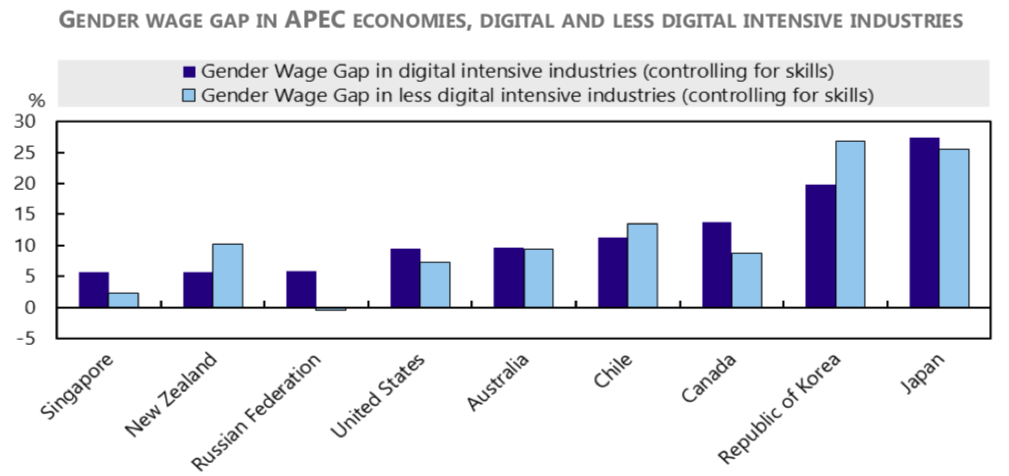Digital skills, Japan and the PP in Covid times
Covid has meant that almost all of us are having to use more technological skills – and in many cases to learn them. Communication IT is the most obvious form, with Zoom, MicrosoftTeams and so on to the fore in helping us stay in touch, personally as well as professionally. But international analyses are increasingly showing how in the short term at least there is a shift in the labour market which favours digital skills – and therefore risks accentuating the gender divide. A recent Financial Times piece on this led me to a broad-ranging presentation by OECD’s Mariagrazia Squilliardici, covering issues such as digital literacy, careers advice, workplace climate, and patenting activity.
Demand for care workers is shooting up, for obvious reasons. Does this mean that better-paid jobs will go still more disproportionately to men, with stronger labour market segregation as women find employment in traditional care-giving sectors? Quite possibly. There’s also a risk of AI baking in these differences, as algorithms become used more and more, with the risk they carry of reflecting built-in assumptions about who does what.
I was particularly interested to note one chart from the OECD. It shows so clearly the two advanced Asian economies, Japan and Republic of Korea, as the prime exemplars of the Paula Principle: both with very highly educated female populations and at the same time exceptionally high wage gaps, in this case in digital skills.

A separate FT piece reflected more generally on Japan’s current position, as they experience a change in the political guard. Former prime minister Shinzo Abe launched a set of policies under the label of Womenomics, a subset of his rather self-aggrandising Abenomics. It has led to a rise in female labour force participation, though quite a modest one, from 48% in 2012 to 53% in pre-Covid 2019. The question for Japan is whether women’s employment can be not only sustained but translated into careers that reflect their competences. The same issue, in different forms, presents itself to many other countries.
